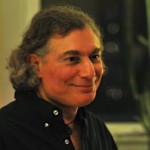 The College of Education in collaboration with the College of Liberal Arts presents a Special Seminar by Brett Bigham entitled “Oregon State Teacher of the Year: The Path to Advocacy.” The seminar will take place on Friday, April 18, 2014 from 10:30 – 11:30 a.m in 202 Furman Hall.
The College of Education in collaboration with the College of Liberal Arts presents a Special Seminar by Brett Bigham entitled “Oregon State Teacher of the Year: The Path to Advocacy.” The seminar will take place on Friday, April 18, 2014 from 10:30 – 11:30 a.m in 202 Furman Hall.
BRETT’S BIO:
Brett Bigham is the first Special Education Teacher in Oregon to be named Teacher of the Year. He is a fierce advocate for at-risk youth and children with Special Needs. Brett is a graduate of OSU and the Department of Communications. In his role as teacher he works with a variety of students with emotional, physical and communication issues he has built a program around the communication skills he received from his program at OSU. Brett was a member of the OSU Forensics Team and won over 50 state and national awards for the Beavers and in his current role he is traveling the state and country as Oregon’s Ambassador for education.
State Representative Sara Gelser will be joining us for this special seminar as well.

